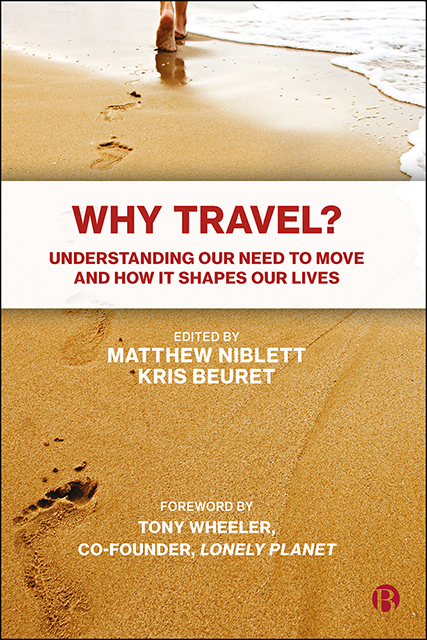Book contents
7 - Religious and Spiritual Travel
Published online by Cambridge University Press: 21 April 2023
Summary
We are pilgrims, our life is a long walk or journey from earth to Heaven. (Vincent van Gogh)
These words, written by Vincent van Gogh for a Sunday sermon he delivered in 1876, express a ubiquitous metaphor, found across times, cultures and religions: that of life as a journey – and one with a spiritual purpose. In the Christian scriptures, this comparison is found in Jesus's Sermon on the Mount, in which Christ explained that ‘narrow is the gate and difficult the road that leads to life’ (Matthew 7:13–14). The great Hindu mystic Swami Sivananda spent many of his early years as a wandering mendicant and credited this with developing spiritual and mental strength. ‘Life is a pilgrimage’, he later said, and ‘the wise man does not rest by wayside inns, but marches direct to the illimitable domain of eternal bliss, his ultimate destination.’
This chapter explores the question: what can a study of spiritual travel tell us about the wider human motivations for travel? Travel plays a central role in all major religions both in practice and conceptually – and not only as a metaphor for a spiritual life. Travel can be found both at the core of religious narratives and also as an important religious practice, whether it be pilgrimage, mission, or a weekly journey to a place of worship. If we take a moment to glance at the numbers, this importance starts to become clear. There are an estimated 200 million journeys of pilgrimage made every year (perhaps considerably more, according to the Alliance of Religions and Conservation and the UN World Tourism Organization). Many of these are people travelling within their own country but a considerable (and probably increasing) number are international journeys. If we add to this the number of missionaries travelling the world to spread their message (again, difficult to estimate but in the low millions every year), let alone the number of people displaced due to religious persecution (which arguably runs into tens of millions), we can see that travel for religious purposes has been – and remains – a force shaping the history of nations and the spiritual and physical lives of billions of individuals.
In this chapter, I explore why travel has developed such an important religious role, and ask what this tells us about the centrality of travel to human psychological and cultural life.
- Type
- Chapter
- Information
- Why Travel?Understanding Our Need to Move and How It Shapes Our Lives, pp. 119 - 140Publisher: Bristol University PressPrint publication year: 2021



